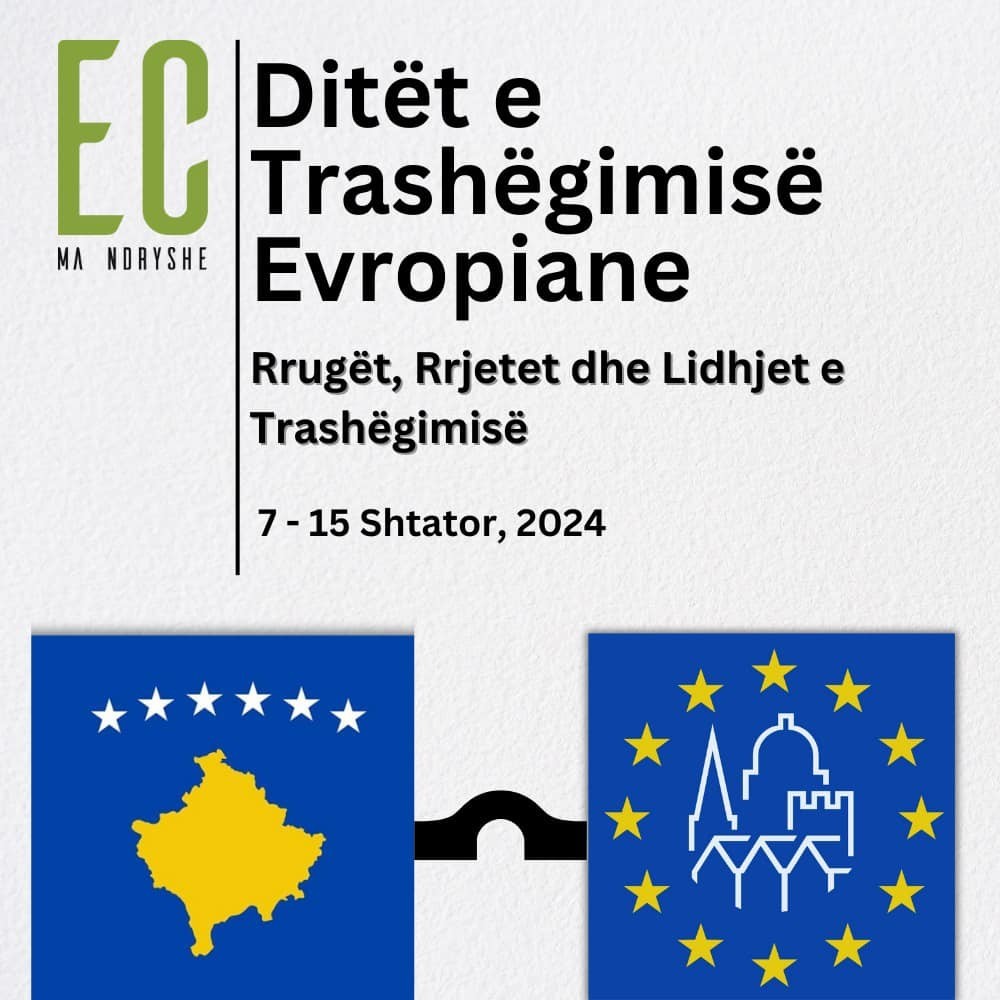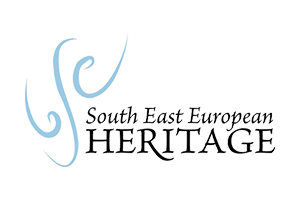The Heritage of Roads, Networks and Connections" a call for recognition of Kosovo's cultural heritage

The Theme of the European Heritage Days 2024, “Routes, Networks and Connections,” highlights the importance of the paths that have connected cultures, communities, and histories for centuries (https://www.europeanheritagedays.com/). It serves as a reminder of how intertwined the pasts of different peoples are, and how vital these connections are to preserving our shared cultural heritage.
However, for Kosovo, this theme carries a special resonance, as it continues to face challenges in gaining recognition on the global stage.
While Europe celebrates its interconnected heritage, Kosovo remains on the periphery of this network. Geographically part of Europe, Kosovo’s rich heritage often goes unnoticed due to its absence from major international heritage organizations such as UNESCO, ICOMOS, and ICCROM. This exclusion means that Kosovo’s historical and cultural routes remain metaphorically closed, as networks and connections remain limited. Despite its efforts, Kosovo’s diverse and ancient heritage—spanning millennia—has limited opportunities to shine on an equal platform.
Blocked paths, challenges of promotion: The theme of “Heritage Routes” speaks not only of the physical routes of trade, pilgrimage, and cultural exchange but also of the symbolic routes of recognition and promotion. For Kosovo, these routes remain blocked by political barriers that prevent its heritage from being fully acknowledged and celebrated on the world stage. Archaeological sites, ancient architecture, and intangible cultural heritage in Kosovo tell a story that is integral to European history. Yet, this narrative is often isolated due to a lack of international access and support.
Disconnected networks, the struggle for inclusion: Inclusion in global heritage networks allows countries to exchange knowledge, receive technical support, and improve the preservation of their cultural assets. Without membership in organizations like UNESCO, Kosovo misses out on opportunities for cooperation, funding, and international visibility. Kosovo’s heritage is a vital link in the European and global heritage network—but it is a link that remains disconnected due to political considerations. This exclusion not only diminishes Kosovo’s heritage but also weakens the broader narrative of European cultural identity.
Severed connections, the cost of political isolation: The theme of “Connections” is a stark reminder of what Kosovo is missing. Cultural connections transcend politics—they are about shared values, histories, and human experience. Yet, when political decisions isolate a country, the rich cultural tapestry it offers is also cut off. Kosovo’s unique heritage—a blend of Illyrian, Roman, Byzantine, Ottoman, and modern influences—deserves a place in the world’s collective memory. But without international recognition, these connections remain suspended, incomplete, and misunderstood.
A call for change, culture beyond politics: Heritage is more than monuments and artifacts; it is the living legacy of a community’s identity. It transcends borders and politics and speaks a universal language of human achievement and resilience. The European Heritage Days remind us that heritage should unite, not divide. For Kosovo, this is a call to action: the cultural heritage and values of a people are too precious to be overshadowed by political barriers.
The European Heritage Days, organized by the Council of Europe (since 1985) and the European Union (since 1999), are among the largest and most celebrated cultural events in Europe. Each year, thousands of monuments and sites that are usually closed to the public are opened for free visits, allowing citizens to experience and learn about their cultural heritage, contributing to its preservation for future generations.
These events, held in 50 participating countries, aim to raise awareness of Europe’s cultural heritage, promote intercultural tolerance, and inform the public and governments about the importance of heritage protection. Each year, the events are organized under a specific theme, with participation from regional and local authorities and numerous volunteers (https://shorturl.at/wv5YR).
EC Ma Ndryshe, over the years, in cooperation with relevant institutions, has marked these days with various activities to promote the country’s cultural values, contributing to increased public awareness and protection of cultural heritage. Their importance for Kosovo lies in strengthening people’s connection to their heritage, promoting intercultural dialogue, and encouraging the preservation and protection of these assets for the future.
Taking into account this year’s EHD theme, EC Ma Ndryshe calls for a reassessment of these networks and connections by all stakeholders. The heritage routes must be open to all, and Kosovo’s cultural heritage must be recognized, preserved, and promoted as part of Europe’s shared heritage. Kosovo’s stories, sites, and traditions are interwoven into the broader narrative of human history.
The theme of the European Heritage Days cannot be fully realized if part of this history is left out.
As we reflect on “Heritage of Routes, Networks and Connections,” let us remember that heritage is not only about where we have been—but also about where we are going. Kosovo is ready and deserves to be part of that journey.




